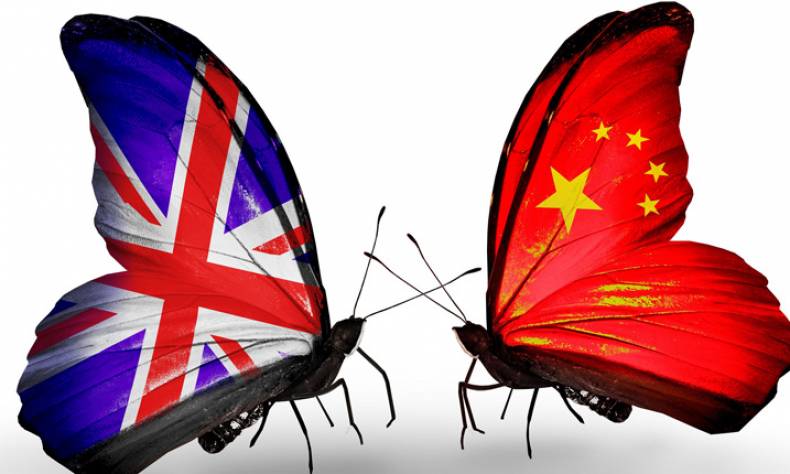
UK Chancellor: We Want to be China’s Best Partner in the West
“There are those who say we should fear China’s rise – that we should somehow guard ourselves against it. But we reject such thinking, which would simply leave the UK slipping behind. Instead, we should embrace it,” George Osborne, the UK’s Chancellor of the Exchequer, announced shortly before his five-day trip to China.
The declaration was boldly made in an Observer article, which was also co-written by Lord O’Neil, a past economist for Goldman Sachs and the present commercial secretary to the UK’s Treasury.
The article argues that “The future prosperity of [ the UK] depends on us strengthening our relationship with the world’s next superpower.” O’Neil and Osborne put forth that by reinforcing the UK’s relationship with the world’s second largest economy, the British would gain greater business opportunities in areas such as manufacturing and infrastructure, whilst the country’s economic stability would also be promoted as more Chinese enterprises would be drawn to expand their businesses in the UK.
In some ways, the article almost reads as a love letter to China – surging with the enthusiastic compliments that are almost certainly aimed at getting the Chinese weak at the knees. The grand affirmations – such as “want[ing] to make the UK China’s best partner in the west,” – definitely give off such an impression.
These songs of praise may serve as a much welcomed boost to China’s ego – an ego which has very likely been considerably dented over the past summer as a result of the country’s plunging share prices as well as the devaluation of its currency. After all, there cannot be a better way to put an end to the panic that China hurtling towards a hard landing, other than witnessing one of UK’s most influential politician’s make such a dramatic announcement of his confidence in the Chinese economy.
After talking the talk, Osborne and O’Neil have tried their best to walk the walk. On the 20th of September, the two British politicians kicked off a five-day tour of China as part of their mission to boost UK-China business relations. In particular, the trip aimed to attract Chinese investment for the UK’s ‘Northern Powerhouse’ . Alongside a team compromised of top British business, public figures as well as heads of museums and theatres, the pair visited China’s major cities including Beijing, Shanghai and Chengdu, as well as Urumqi, situated in the restive Western province of Xinjiang.
Similarly, next month shall see Xi Jinping make his first state visit to the UK, where he shall be hosted by the Queen at Buckingham Palace.
However, not everyone is won over by Osborne’s standard diplomatic jargon of ‘win-win,’ ‘mutual benefit’ and ‘golden decade.’ For one, given the recent volatility of the Chinese economy, should the UK really be banking on the China becoming the ‘next superpower’? The Guardian stresses this risk, noting that Osborne’s vision of China-UK partnership would see the “British economy […] placed in a more dependent relationship with China, at a time when China’s growth is stalling and its stock market faltering.”
Similarly, the Chancellor has been strongly condemned for not drawing attention to China’s human rights issues. His failure to do so echoes the US’ recent criticism of the UK’s ‘constant accommodation’ to Beijing after the British decided to join the China-led Asian Investment Infrastructure Bank – much to the Whitehouse’s displeasure.
Osborne has endeavoured to deflect the criticism by arguing “do we disagree about human rights? Yes we do. Does that mean we resile from our British values? Not at all. But isn’t it better to engage and talk about these things rather than stand on the side lines and try and conduct some kind of some megaphone diplomacy?”
Whether we will see Osborne, once more, walk this particular walk remains to be seen.
 Facebook
Facebook
 Twitter
Twitter
 Linkedin
Linkedin
 Google +
Google +











Comments are closed.